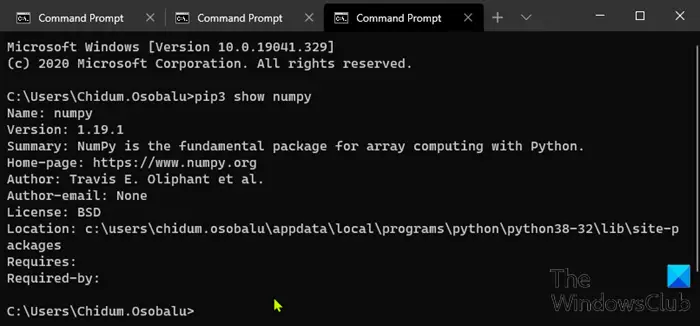

This tool window is available in P圜harm 2021.1 and later Manage packages in the Python Packages tool window In P圜harm, you can preview and manage packages in the Python Packages tool window and in the Python interpreter Settings. For Conda environments you can use the conda package manager. By default, P圜harm uses pip to manage project packages. It means that each project has its own set of packages, which is considered a best practice for Python dependency management. Foresti, 2019: pysteps - a Community-Driven Open-Source Library for Precipitation Nowcasting.P圜harm provides methods for installing, uninstalling, and upgrading Python packages for a particular Python interpreter.

Probabilistic precipitation nowcasting (v1.0). Foresti, 2019: Pysteps: an open-source Python library for

To get access to it, you need to ask for an invitation or you can use this automatic invitation page. You can get in touch with the pysteps community on our pysteps slack. Contributionsįor feedback, suggestions for developments, and bug reports please use the dedicated issues page.įor more information, please read our contributors guidelines. More information on how to download and install them is available here. Example dataĪ set of example radar data is available in a separate repository: pysteps-data. Have a look at the gallery of examples to get a good overview of what pysteps can do.įor a more detailed description of all the available methods, check the API reference page. More details can be found in the installation guide. The recommended way to install pysteps is with conda from the conda-forge channel: $ conda install -c conda-forge pysteps Use pysteps to compute and plot a radar extrapolation nowcast in Google Colab with this interactive notebook. In addition, it includes tools for visualizing and post-processing the nowcasts and methods for deterministic, probabilistic, and neighbourhood forecast verification.

The pysteps library supports standard input/output file formats and implements several optical flow methods as well as advanced stochastic generators to produce ensemble nowcasts. The second aim is to offer a highly configurable and easily accessible platform for practitioners ranging from weather forecasters to hydrologists. The first is to provide a modular and well-documented framework for researchers interested in developing new methods for nowcasting and stochastic space-time simulation of precipitation. The aim of pysteps is to serve two different needs. Pysteps is an open-source and community-driven Python library for probabilistic precipitation nowcasting, i.e. Pysteps - Python framework for short-term ensemble prediction systems docs


 0 kommentar(er)
0 kommentar(er)
